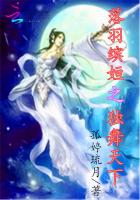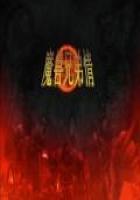Sufficient care was taken that this report should find its way to Ravenswood Castle through every various channel, Lady Ashton being well aware that the very reiteration of the same rumour, from so many quarters, could not but give it a semblance of truth. By some it was told as a piece of ordinary news, by some communicated as serious intelligence; now it was whispered to Lucy Ashton's ear in the tone of malignant pleasantry, and now transmitted to her as a matter of grave and serious warning.
Even the boy henry was made the instrument of adding to his sister's torments. One morning he rushed into the room with a willow branch in his hand, which he told her had arrived that instant from Germany for her special wearing. Lucy, as we have seen, was remarkably fond of her younger brother, and at that moment his wanton and thoughtless unkindness seemed more keenly injurious than even the studied insults of her elder brother.
Her grief, however, had no shade of resentment; she folded her arms about the boy's neck, and saying faintly, "Poor Henry! you speak but what they tell you" she burst into a flood of unrestrained tears. The boy was moved, notwithstanding the thoughtlessness of his age and character. "The devil take me,"said he, "Lucy, if I fetch you any more of these tormenting messages again; for I like you better," said he, kissing away the tears, "than the whole pack of them; and you shall have my grey pony to ride on, and you shall canter him if you like--ay, and ride beyond the village, too, if you have a mind.""Who told you," said Lucy, "that I am not permitted to ride where I please?""That's a secret," said the boy; "but you will find you can never ride beyond the village but your horse will cast a she, or fall lame, or the catle bell will ring, or something will happen to bring you back. But if I tell you more of these things, Douglas will nto get me the pair of colours they have promised me, and so good-morrow to you."This dialogue plunged Lucy in still deeper dejection, as it tended to show her plainly what she had for some time suspected, that she was little better than a prisoner at large in her father's house. We have described her in the outsdet of our story as of a romantic disposition, delighting in tales of love and wonder, and readily identifying herself with the situation of those legendary heroines with whose adventures, for want of better reading, her memory had become stocked. The fairy wand, with which in her solitude she had delighted to raise visions of enchantment, became now the rod of a magician, the bond slave pof evil genii, serving only to invoke spectres at which the exorcist trembled. She felt herself the object of suspicion, of scorn, of dislike at least, if not of hatred, to her own family; and it seemed to her that she was abandoned by the very person on whose account she was exposed to the enmity of all around her. Indeed, the evidence of Ravenswood's infidelity began to assume every day a more determined character. A soldier of fortune, of the name of Westenho, an old familiar of Craigengelt's, chanced to arrive from abroad about this time. The worthy Captian, though without any precise communication with Lady Ashton, always acted most regularly and sedulously in support of her plans, and easily prevailed upon his friend, by dint of exaggeration of real circumstances and coining of others, to give explicit testimony to the truth of Ravenswood's approaching marriage.
Thus beset on all hands, and in a manner reduced to despair, Lucy's temper gave way under the pressure of constant affliction and persecution. She became gloomy and abstracted, and, contrary to her natural and ordinary habit of mind, sometimes turned with spirit, and even fierceness, on those by whom she was long and closely annoyed. Her health also began to be shaken, and her hectic cheek and wandering eye gave symptoms of what is called a fever upon the spirits. In most mothers this would have moved compassion; but Lady Ashton, compact and firm of purpose, saw these waverings of health and intellect with no greater sympathy than that with which the hostile engineer regards the towers of a beleaguered city as they reel under the discharge of his artillery; or rather, she considered these starts and inequalities of temper as symptoms of Lucy's expiring resolution;as the angler, by the throes and convulsive exertions of the fish which he has hooked, becomes aware that he soon will be able to land him. To accelerate the catastrophe in the present case, Lady Ashton had recourse to an expedient very consistent with the temper and credulity of those times, but which the reader will probably pronounce truly detestable and diabolical.















